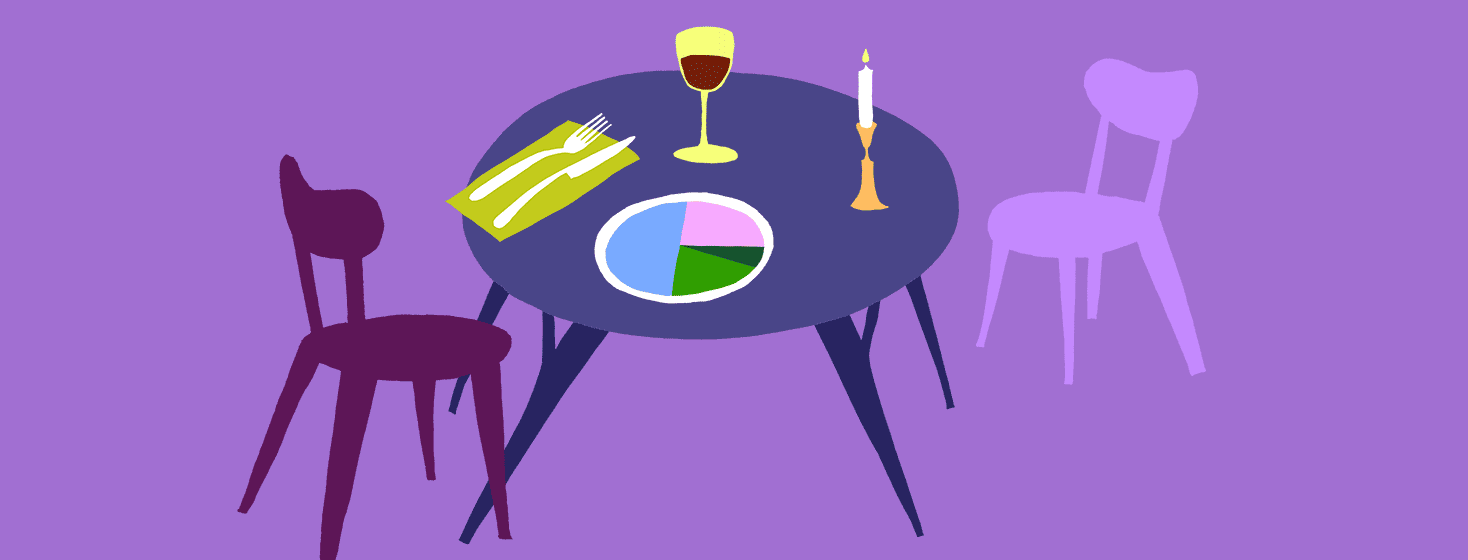HIV Changed My Thoughts on Nutrition and How I Eat
I don’t think I gave my eating habits any thought until I received my HIV test results in 1994. I was 29 years old and had dabbled in "healthy food" several times. Salads and smoothies were interspersed with a hearty amount of gumbo, PO-boys, and fried seafood.
There was no shock when my case manager delivered the results. My partner of 8 years had his status confirmed a month before me. I asked if there was anything I could do to live. As it turned out, our AIDS Task Force was hosting a weekend-long conference on living with HIV. I signed up and marched off, ready to make my survival plan.
The first step to making a change
This event was the first in New Orleans, at least on the scale they executed. There were workshops on treatments, advocacy, alternative therapies, and lifestyle. I was surprised at the number of attendees. So many people I saw daily were in the chairs, faces upturned, hoping for some whisper of good news.
But there was one presentation I participated in that shocked me with the lack of interest. It was about fighting the effects of HIV on your body through nutrition.
It was at a local organic market. There were recipes presented as well as $100 of free groceries donated by the store. Despite all this, it only drew six people out of a conference with several hundred participants.
How does living with HIV affect your diet and nutrition?
HIV is a complicated virus. It affects all areas of your body. It can affect your metabolism. Untreated, you could experience wasting. On the flip side, treatments can cause unwanted weight gain or bring the onset of co-morbidities like high blood pressure or diabetes.1
Opportunistic infections can cause issues with eating and swallowing, while some medicines may upset your stomach. You should report any of these issues to your caregiver to be partners in making good choices with your nutritional habits.1
So, what does eating healthy mean when living with HIV?
Like everything else, there is an overabundance of information on this topic. I encourage you to do the work and dive into reliable and trustworthy sites with peer-reviewed details. Don’t just jump at the latest clickbait fad. And be sure to discuss any changes in your diet with your caregiver, as some medicines can negatively interact with specific enzymes and supplements.
For myself, I try to live by four simple rules
Choose a rainbow
When I look at my plate, I try to have multiple colors represented. I choose food in shades from green leafy vegetables to bright red peppers. You don’t have to overdo it and have every color in your recipe. A good mix will provide a wide range of vitamins and antioxidants to power your immune system.
A little bit of everything goes a long way
I always try to ensure that I have at least three food groups on my plate. This is another place where it’s unnecessary to do all of them simultaneously. I like to do some meal prep, so I have options when preparing my meals. I may go veggie-forward for lunch and then lean into the traditional meat, carbohydrate, and vegetable mix for supper. Mixing it up allows me to keep my meals exciting and not the same every day.
Do I need that (much)?
When I serve myself, I try to use a smaller plate; that way, I control how much I eat. I also consider this when I’m looking for a second helping. When I’m pulling a meal together, I step back and ask if it is too much. This can end up creating waste or, even worse, overeating.
Don't sweat your favorites
It’s okay to have your favorite burger or pizza. It just can’t be every meal. I also think about what I’m topping and accompanying these meals with. Can I leave off the bacon and cheese on the burger? Can I have one slice of pizza with a side salad? I want to make good choices, but I also want to enjoy my life. And I never beat myself up if I slip off my routine. I just promise to start again tomorrow.
Good nutritional choices can help provide the energy and nutrients your body needs to fight HIV and other infections. I believe that’s all I need to know when making decisions to help me thrive and survive as a person with HIV.

Join the conversation